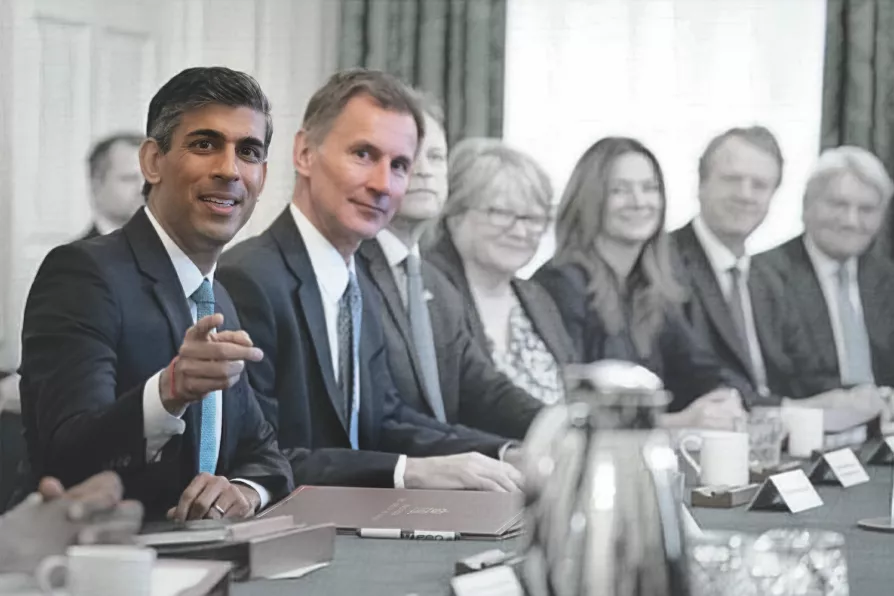Mass mobilisations are forcing governments to seriously consider imposing sanctions and severing ties — even in places like Australia and the Netherlands — despite continued arms shipments to Israel’s war machine, writes RAMZY BAROUD

 EMPTY PROMISES: Rishi Sunak (left) and Jeremy Hunt might attempt the same trick as David Cameron and George Osborne in 2014
EMPTY PROMISES: Rishi Sunak (left) and Jeremy Hunt might attempt the same trick as David Cameron and George Osborne in 2014
THE Tories got a drubbing in the local elections — but it would be a mistake to believe that the next election is a foregone conclusion.
They can read opinion polls too, and the loss of over 1,000 council seats will still be hurting.
As a result, it would be a mistake to assume that they will carry on just as before in all respects; they will have to offer something to voters.

Every Starmer boast about removing asylum-seekers probably wins Reform another seat while Labour loses more voters to Lib Dems, Greens and nationalists than to the far right — the disaster facing Labour is the leadership’s fault, writes DIANE ABBOTT MP

DIANE ABBOTT explodes the anti-migrant myths perpetrated by cynical politicians and an irresponsible mass media

Our Foreign Secretary now condemns Israel in the Commons, yet Britain still supplies weapons and intelligence for its bombing campaigns — as the horror reaches perhaps the final stage, action must finally replace words, writes DIANE ABBOTT MP

The BBC and OBR claim that failing to cut disability benefits could ‘destabilise the economy’ while ignoring the spendthrift approach to tens of billions on military spending that really spirals out of control, argues DIANE ABBOTT MP














